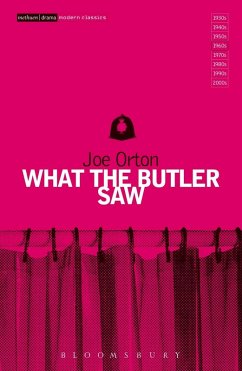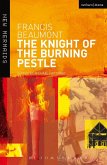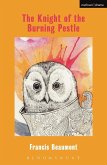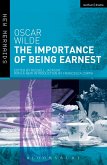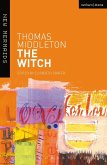"Joe Orton's last play, What the Butler Saw, will live to be accepted as a comedy classic of English literature" (Sunday Telegraph)
The chase is on in this breakneck comedy of licensed insanity, from the moment when Dr Prentice, a psychoanalyst interviewing a prospective secretary, instructs her to undress. The plot of What the Butler Saw contains enough twists and turns, mishaps and changes of fortune, coincidences and lunatic logic to furnish three or four conventional comedies. But however the six characters in search of a plot lose the thread of the action - their wits or their clothes - their verbal self-possession never deserts them. Hailed as a modern comedy every bit as good as Wilde's The Importance of Being Earnest, Orton's play is regularly produced, read and studied. What the Butler Saw was Orton's final play.
>
The chase is on in this breakneck comedy of licensed insanity, from the moment when Dr Prentice, a psychoanalyst interviewing a prospective secretary, instructs her to undress. The plot of What the Butler Saw contains enough twists and turns, mishaps and changes of fortune, coincidences and lunatic logic to furnish three or four conventional comedies. But however the six characters in search of a plot lose the thread of the action - their wits or their clothes - their verbal self-possession never deserts them. Hailed as a modern comedy every bit as good as Wilde's The Importance of Being Earnest, Orton's play is regularly produced, read and studied. What the Butler Saw was Orton's final play.
>

